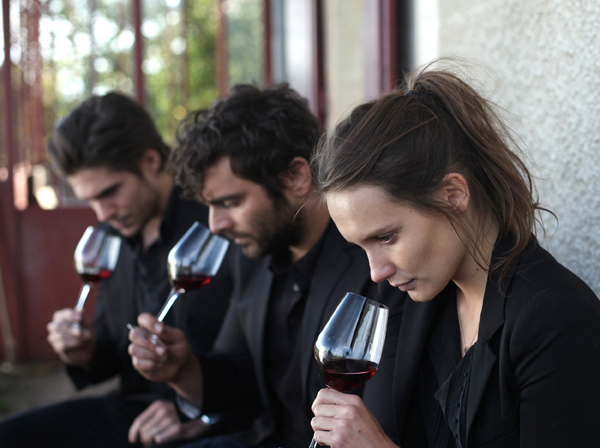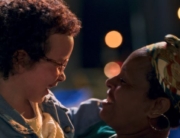Director Cédric Klapisch made his name 15 years ago with L’Auberge Espagnole. That comedy romped through relationships between young people thrown together from all over the European Union, an entity which then held out the promise of a happily integrated continent. Now that the bloom is off the EU rose, Klapisch’s new Back to Burgundy turns to youngish French siblings making the choice whether to maintain their late father’s vineyard. It feels refreshing to use a lovely French landscape as a setting for the problems and energies of the young. On the downside, the charm that animated the earlier film feels superficial in a more traditional milieu.
When it comes to life on the farm, tension often flares between those who go and those who stay, and a Bordeaux wine family is no different. Brother and sister Jérémie (François Civil) and Juliette (Ana Girardot) are angry with older brother, Jean (Pio Marmaï), who lit out for Australia years ago and didn’t even return calls when their mother died. Now he’s come home for the death of their father and to help them face a looming question: Should the family sell their property or carry on growing grapes and making wine—very good wine at that?
Beautifully shot over a full year, the estate is a gorgeous, undulating piece of hillside whose dappled colors glow with the seasons. Pierre remarks, “You think the land belongs to you, but you belong to it,” and the land has a different hold over each sibling. Juliette is the most devoted to the winemaker’s craft. The simple, guileless Jérémie throws all his energy into work, perhaps as a way to establish independence from controlling in-laws, and Jean approaches the vineyard with a mix of memories, guilt, and worry about his abandoned partner and son on the other side of the world, a quandary explored in many a wrenching phone call.
The movie bursts with high spirits. Klapisch cleverly turns a vineyard grape fight spurred on by class conflict into a romantic encounter; the setting, a wine-soaked dance blowout for the field workers, makes being twenty-something in France look like the best gig in the world. On the other hand, the film can suddenly feel slack and shallow. Jérémie’s family conflicts are played for tame laughs, and like many other of the film’s set pieces, they rerun over and over again. Given to truculence, Jean is not as engaging as the film seems to think he is, and Juliette, possibly the deepest (and smartest) character, is afforded little in the way of exposition or even a private life.
But attention to the process of winemaking and the decisions that go it into it add texture and purpose to the film’s episodic domestic issues. In the end, Back to Burgundy rewards hard work, pride, and loyalty to one’s roots. Virtues worth extolling, even if the movie deals with them in a rather pat way.

















Leave A Comment